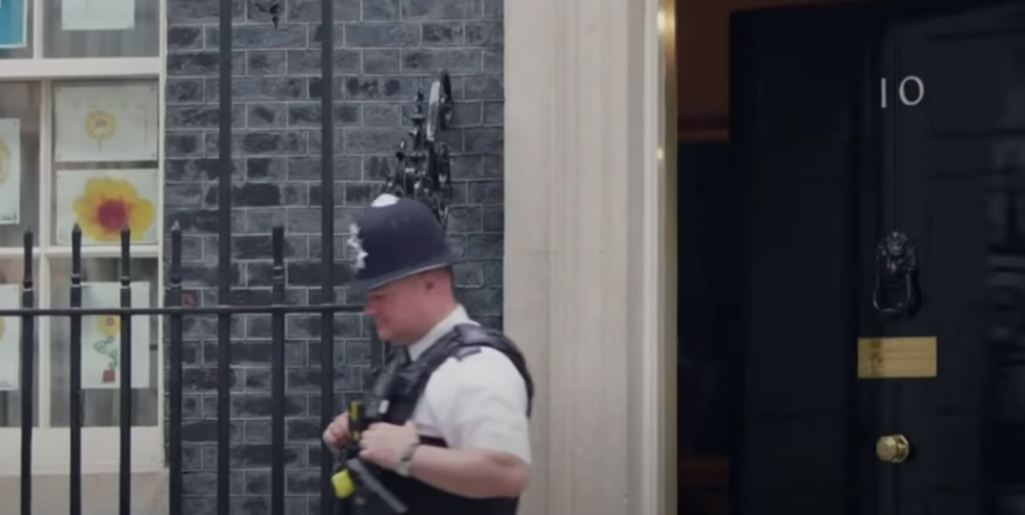Minding Our Manners

A man tries to murder a British writer for what he wrote in a novel published 34 years ago, 10 years before the would-be murderer was born. A Police Community Support Officer in Britain seeks to lecture a woman about changing her views on trans rights despite two police officers having previously visited and determined that the woman was committing no offence by displaying a sticker, expressing different views to that of the PCSO, in her window. A British university warns students that Hardy novels have scenes showing cruelty in nature which they might find upsetting, assuming that is that none of them have ever had a pet cat, in which case they would have been exposed to lots of natural feline cruelty from a very young age.
There are some common assumptions underlying all of these events: offence is a bad thing, hurt feelings must be avoided, only one received opinion on controversial topics is permissible, people’s sensibilities and sensitivities must be respected and tiptoed around, challenge is unacceptable, rude even. What might be regarded as the realm of manners – what lies between the law and free individual choice – using one’s judgment about how to behave, what Lord Moulton described as the “continuum that extends from a consciousness of duty through a sense of what is required by public spirit, to good form appropriate in a given situation” is increasingly in retreat faced with the aggressive demands of those who seek to criminalise, regulate or limit anything they disagree with.
Is this really the zeitgeist? I hope not. Some thoughts:
- The assumption that avoidance of offence is a legitimate, indeed worthwhile political aim, is dangerously misguided in a free society and incompatible with freedom of thought and speech.
- It is no business of the state or its officials to concern themselves with its citizens’ sensibilities. A state that does so will quickly arrogate to itself – or give unaccountable private corporations – unlimited powers to intrude even into the realm of private thoughts and feelings. See the Online Safety Bill for an example of the censorship by tech companies that will result.
- Harmful nonsense such as non-crime hate incidents is another consequence of this wrong-headedness. The police turning up at your door to “check your thinking” is not a trivial matter, as the Court of Appeal recently ruled.
- Respect is earned not demanded. No-one is entitled to it unless their actions and statements are such that others freely decide they are worth respecting.
- Ideas and belief systems are only worthy of respect if they are capable of standing up to vigorous challenge. J S Mill’s words should be better known than they are: “He who knows only his side of the case knows little of that.”
- Received opinions which seek to protect themselves from challenge, whether legally, by threats of violence, by insisting on “no debate” or by refusing to listen to contrary views, which throw the cloak of victim over themselves as a way of warding off any challenge are simultaneously babyish, fanatical and aggressive in intent.
- We should be deeply suspicious of those promoting such beliefs not facilitating or encouraging them. If free expression is inconvenient to such people or groups, too bad. As Christopher Hitchens put it some 21 years ago: “We cannot possibly adjust enough to please the fanatics, and it is degrading to make the attempt.“
- Politeness is, at heart, a form of kindness freely given by the person being polite. Politeness out of fear of the consequences is worthless. It is cowardice masquerading as etiquette.
Should we now query whether religion or belief (which now seem to include a strongly held political opinion or an acceptance of scientific facts) should be a “protected characteristic” under the Equality Act? As Rushdie said: “The moment you declare a set of ideas to be immune from criticism, satire, derision, or contempt, freedom of thought becomes impossible.” Is saying that we are protecting the person with the belief a good enough answer? Why should ethical belief systems or, indeed, any belief system (a belief in Scottish independence or veganism have been held to be a philosophical belief for the purposes of the Act’s anti-discrimination provisions) be so protected? And where and by whom should the boundaries of which beliefs deserve protection be drawn?
That we have meekly accepted that beliefs should be protected, that we worry about causing offence to students when asking them to engage with difficult issues or challenging literature, that self-important state officials see nothing wrong in lecturing people about their opinions even when they have committed no crime shows that, for all the brave talk when Rushdie was first attacked 33 years ago and again this week, we have learned precisely the wrong lessons from what happened then and in the years since.